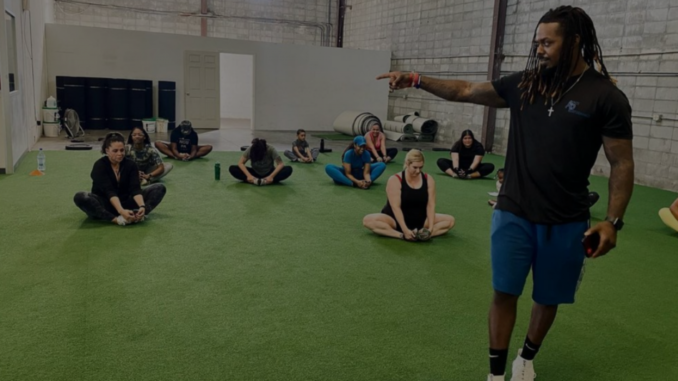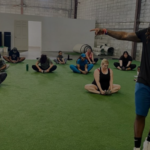
 Building muscle requires a positive energy balance, which means that you must take in more calories than you burn. To build a pound, you need approximately 2,800 calories. This is mainly to support protein turnover which can be increased with training. These tips will help you build muscle mass faster and more efficiently.
Building muscle requires a positive energy balance, which means that you must take in more calories than you burn. To build a pound, you need approximately 2,800 calories. This is mainly to support protein turnover which can be increased with training. These tips will help you build muscle mass faster and more efficiently.
The body can only build around 227g of muscle per week. If you eat too much to try to increase muscle mass, you’ll also gain extra fat. Aim to consume 250-500 calories more per day. Keep the lower end of this range if you are prone to gaining weight. If you have difficulty gaining weight, the higher end should be used. You will need to experiment to figure out the best amount of calories to build muscle and keep you lean.
Research suggests that lean protein intake 15 to 20 minutes prior, during, and within an hour of exercise can help increase muscle growth. Although you won’t be eating steak or chicken breasts at the gym, it may be beneficial to take a protein supplement or drink before, during, or after your workouts.
It’s not just about protein. It’s about eating many meals that meet your calorific expenditure and provide you with the nutrition as part of a healthy, balanced diet that will help you to build muscle, lose fat and get stronger. These are eight easy tips to get you started…
To build muscle mass, eat breakfast
This will give you an instant boost of energy and help you stay full until your next meal. It also sets the trend: you’ll tend to eat healthier if your day starts with a strong and healthy breakfast. If you want to increase muscle mass, omelets are your best option.
3 times per day
It is essential to eat the right things at the right times in order to increase muscle mass. It is best to eat breakfast, lunch, and dinner as normal, with some meals pre-workout, before bed, and two snacks in between. You’ll feel fuller and less hungry if you eat smaller meals than large meals. You will feel fuller quicker and have fewer cravings. You may find yourself eating less for longer periods of time, which can lead to eating more or filling up on unhealthy snacks from vending machines. To stop cravings, eat at regular times each day. Your body will feel more full at those times.
For better muscle mass, eat protein with each meal
Protein is essential for building and maintaining muscle. You should aim to consume at least 1g for every 454g body weight. If you are 91kg, that’s 200g per day. This amount can be achieved by eating whole proteins with every meal. These include: * Red meat. Beef, pork, lamb, etc. * Poultry. Chicken, turkey, duck, etc.
* Fish. Tuna, salmon, sardines, mackerel, etc.
* Eggs. Do not believe cholesterol myths. Consume the yolk.
* Dairy. Milk, cheese, cottage cheese, quark, yogurt, etc.
* Whey. It’s not necessary, but it is great for post-workout shakes.
* You can also try vegan options like lentils, tofu, and seeds.
With every meal, eat fruit and vegetables
Many of these foods (but not all) are low in calories, so you can eat as much as you like without worrying about gaining weight or fat. Fruit and vegetables are also full of vitamins, minerals, antioxidants, and fiber which helps digestion, but just be careful to check the sugar content of some fruits.
Only eat carbs after you have finished your workout
Carbohydrates are essential for energy. However, most people consume more carbohydrates than they should. Your carbohydrate intake should be limited to the time you are working out.
Consume fruits and vegetables with every meal. These have fewer carbohydrates than whole grains, with the exception of carrots, raisins, and corn.
* Additional Carbs after Workout Only. These include rice, pasta, and bread as well as potatoes, quinoa, oats, and quinoa. Consume whole grains and avoid white carbs.
Eat healthy fats
Because they are slow to digest, healthy fats can help you lose weight and improve your health. Balance your fat intake and eat healthy fats at every meal. Avoid artificial trans-fats, margarine, and other trans-fats.
Drink water to help with muscle mass
The sweating that comes from strength training can cause water loss, which can lead to muscle damage. Water is good for you, but it can also prevent you from becoming dehydrated.
Eat whole foods 90% of the time
For the best results and to increase your muscle mass, 90% of your food should be whole foods.
* Wholefoods. These foods are natural, unprocessed, and unrefined. Examples: fresh meat, fish, poultry, eggs, vegetables, pulses, fruits, rice, oats, quinoa, etc.
* Processed foods often contain trans-fats and added sugars. Bagels, fruit bars, and cereals are all examples.
This post was written by Darryl Johnson, Co-Owner of Apex performance. At https://theapexperf.com/ we are a community of highly trained experts looking to provide performance enhancement and a permanent lifestyle change for our clients in a fun and interactive environment. Members can take advantage of one-on-one training, small group classes and specialized courses for a wide variety of athletics, sports training and body goals!
Leave a Reply